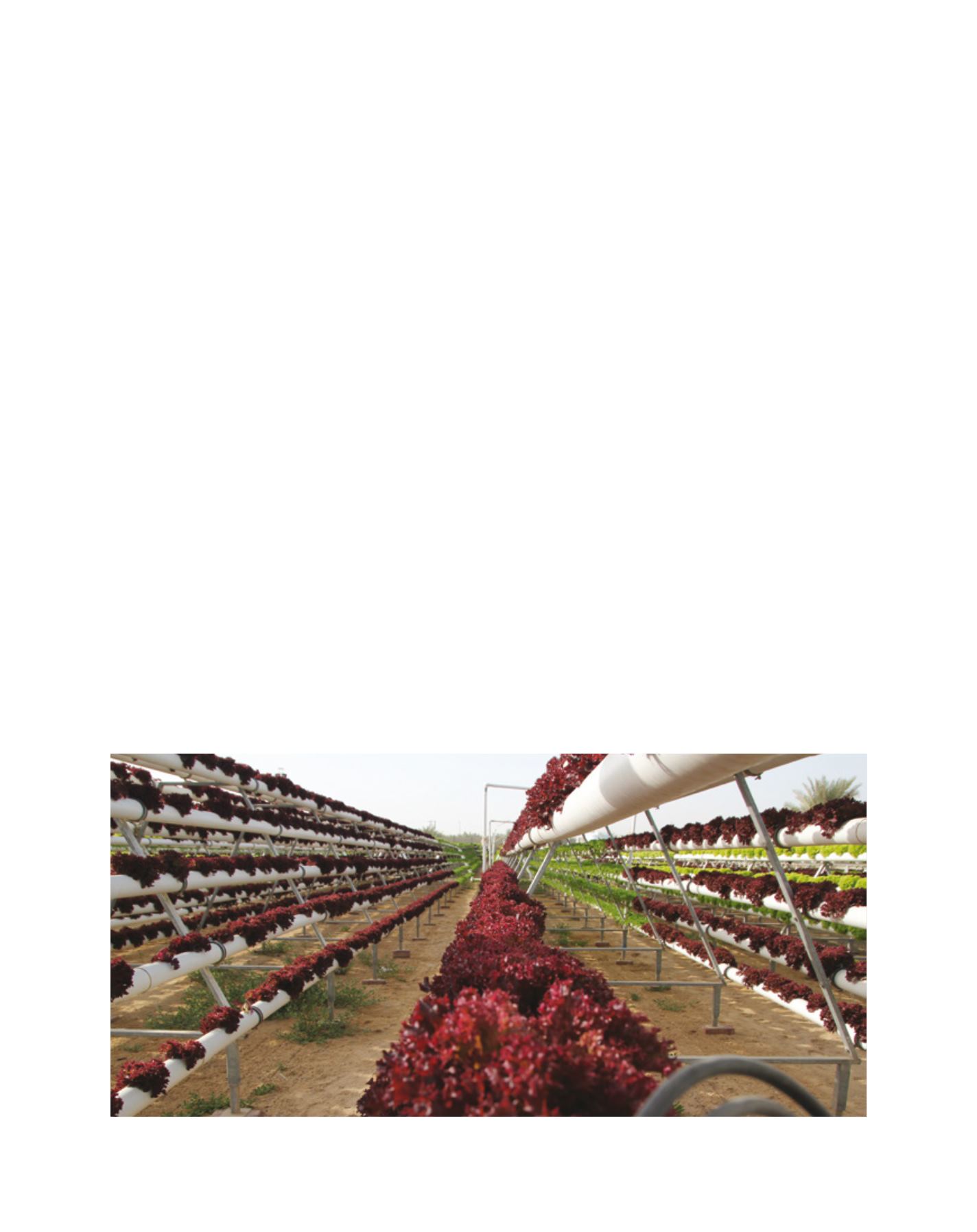

[
] 264
E
conomic
D
evelopment
and
W
ater
requires broad cross-sector coordination rather than
isolated interventions by individual organizations.
Many ambitious but attainable targets are expected
to be achieved by 2030, such as cutting the domestic
consumption of desalinated water by half, stopping the
use of desalinated water for landscape irrigation and
doubling the life of groundwater reserves. Moreover, to
reach these targets, many policy imperatives will have
to be achieved in energy and utilities; building and
infrastructure; industry; agriculture, livestock and fish-
eries; and public realm amenities and forestry sector.
A new policy framework for the use of
groundwater in agriculture
This clear future vision should be supported by a new
policy framework in order to achieve the balance of
ensuring food security while conserving water resources.
Groundwater is a vital source of water for Abu Dhabi,
especially since agriculture and landscape irrigation
consume the largest share of available water. In 2011,
almost 93 per cent of the water used for agriculture
and landscape irrigation came from underground wells.
Therefore, agriculture and landscape irrigation policies
calling for a more sustainable use of water will have a
significant impact on underground water reserves. With
this in mind, the Abu Dhabi Government has recently
established a new governance framework for agricul-
ture, endorsing the Abu Dhabi Food Control Authority
(ADFCA) to lead the development of the agriculture
policy framework and create the Abu Dhabi Farmers’
Services Centre (ADFSC) to implement the policy. The
Abu Dhabi Government has also introduced new laws
and policies to deal with the competitive agriculture
sector by increasing and diversifying production while
promoting a more rational use of water for irrigation.
2011, this demand was driven by the agriculture, forest and parks
irrigation that consumed the lion’s share of available resources (72
per cent), followed by the domestic sector (16 per cent), government
(4.5 per cent), commercial (6.5 per cent), industry (0.5 per cent) and
others (0.5 per cent).
In 2011, the agriculture, forests and parks sector was the largest
consumer of water in Abu Dhabi. Water demand in this sector is
decreasing steadily, probably due to the adoption of demand-side
management measures. Water demand by government is also decreas-
ing, but demand in the domestic, commercial and industry and other
sectors – all of which rely on desalinated water – is on the rise.
Nonetheless, if groundwater abstraction rates continue at the current
level, the resource will be depleted in 55 years. And if agriculture starts
depending solely on desalinated water, sectoral competition for desali-
nated water may become a big economic and environmental challenge.
According to the Regulation and Supervision Bureau, with
planned socioeconomic growth in the emirate and current consump-
tion patterns, water consumption (groundwater, desalinated and
recycled) is expected to triple by 2030. This will have economic,
environmental and social implications as the fiscal burden for the
Government may substantially increase while the longevity of
groundwater is dramatically reduced.
Vision for the future
With the aim of overcoming the challenges and mitigating the envi-
ronmental impact of planned socioeconomic growth, in 2010 the
Environment Agency – Abu Dhabi (EAD) embarked on an ambi-
tious initiative to develop the Abu Dhabi environment vision 2030
(Env2030) on behalf of the Executive Council. Once it is approved,
Env2030 will provide an overall guiding framework to consider and
preserve the environment when operating in the emirate. It will
guide government entity planning and coordination and inform the
private sector, the Abu Dhabi population and international peers
about the aspirations of Abu Dhabi. One priority of Env2030 is the
efficient management and conservation of water resources, which
Abu Dhabi Protected Agriculture Center promotes hydroponic or soilless agriculture that uses 90 per cent less water
Image: ADFCA


















